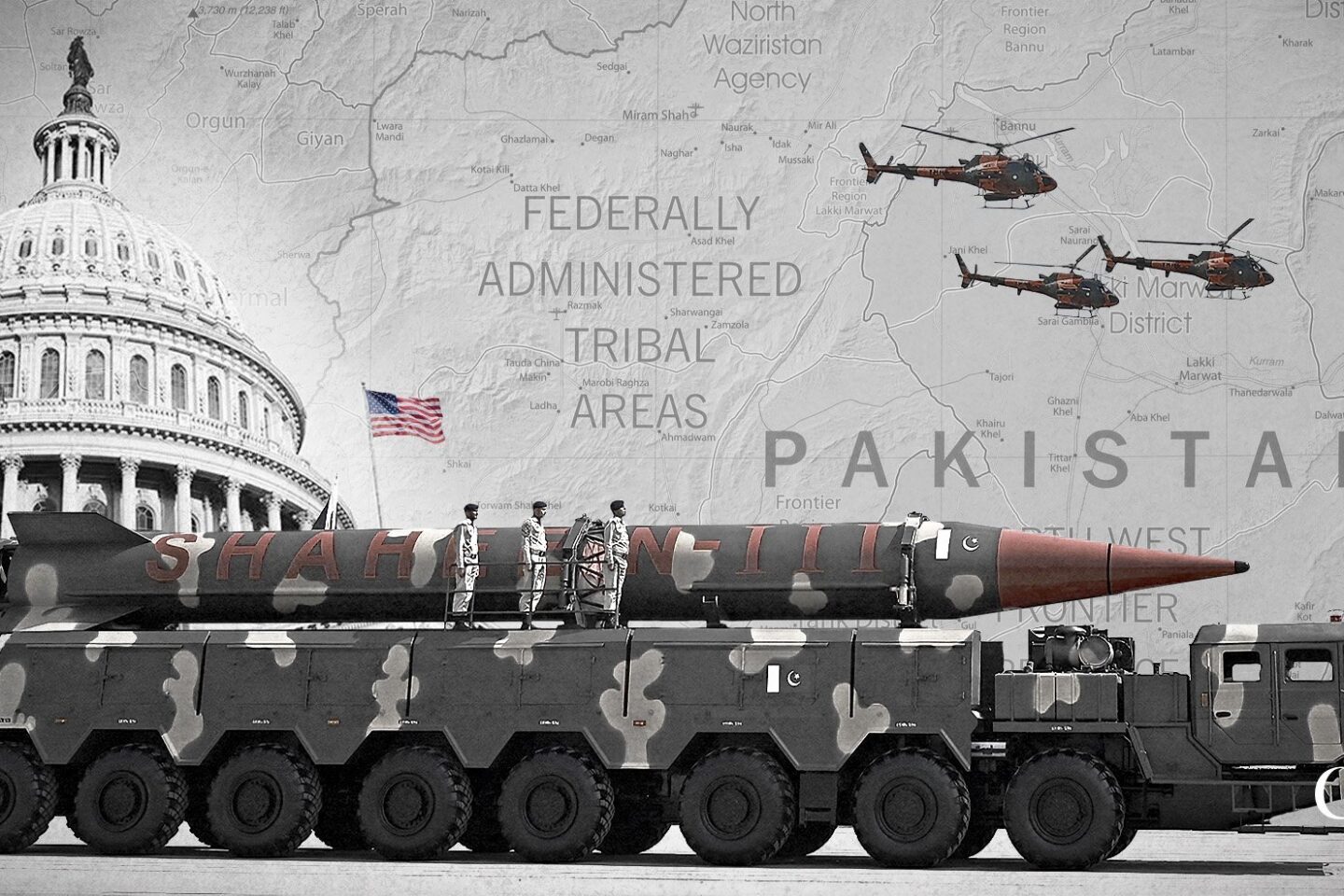In an increasingly polarized world, geopolitical alliances are continuously evolving, often in response to external pressures. The recent US sanctions on various countries have not only reshaped traditional diplomatic relationships but have also opened up new avenues for collaboration. Among those most impacted by these shifts are Pakistan and China, two nations that have historically shared a strong bond. As both countries navigate the complexities of international sanctions, their friendship appears set to deepen, presenting opportunities for growth and cooperation in various sectors.
US Sanctions Spark New Opportunities for Pakistan-China Ties

The imposition of US sanctions on Pakistan and China has created a unique set of challenges and opportunities for both nations. As the United States continues to exert pressure on countries it deems unfavorable, Pakistan and China have found common ground in their mutual interests. The sanctions have turned into a catalyst, pushing these two nations closer together as they seek to counterbalance the influence of the West.
In response to sanctions, both Pakistan and China have begun to explore alternative economic avenues and political partnerships. This newfound synergy is evident in increased diplomatic dialogues, joint military exercises, and collaborative efforts in technology and infrastructure development. The China-Pakistan Economic Corridor (CPEC) stands as a testament to this burgeoning relationship, with projects aimed at enhancing trade and connectivity between the two countries.
Furthermore, the shared experience of facing US sanctions has fostered a sense of solidarity between Pakistan and China. Leaders from both nations have frequently expressed their commitment to supporting each other on the international stage, further solidifying their partnership. This growing camaraderie suggests that challenges can indeed pave the way for stronger ties.
Examining the Evolving Landscape of Geopolitical Alliances

As the global balance of power shifts, the dynamics of geopolitical alliances are also changing. The traditional reliance on Western nations for economic and military support is being re-evaluated, particularly by countries like Pakistan, which has historically been closely aligned with the US. The current sanctions serve as a reminder that dependency on a single superpower can lead to vulnerabilities, prompting nations to seek alternative alliances.
Pakistan’s pivot towards China represents a significant shift in its foreign policy. The two countries are not just cooperating economically; they are also aligning their strategic priorities. This collaboration is further underscored by shared interests in regional security, counterterrorism efforts, and economic development initiatives. As both nations work together, they are positioning themselves as key players in the broader Asian geopolitical landscape, potentially challenging the dominance of Western powers.
The evolving alliances in Asia are not limited to Pakistan and China; other nations in the region are also reassessing their foreign policies. Countries such as Russia and Iran have begun forming their own partnerships, catalyzing a multipolar world where collaboration among non-Western nations becomes increasingly important. This evolving landscape highlights the adaptability of nations like Pakistan and China in response to global pressures.
Trade Partnerships Flourish Amidst US Sanctions Pressure
In light of the US sanctions, trade partnerships between Pakistan and China have flourished. Both nations have recognized the importance of diversifying their economic dependencies and have actively sought to enhance bilateral trade. This shift is not only a response to external pressures but also a strategic move towards economic resilience.
The trade volume between Pakistan and China has seen remarkable growth, with numerous agreements aimed at promoting mutual investment and reducing trade barriers. The establishment of special economic zones under initiatives like CPEC has provided a framework for increased collaboration between businesses in both countries. As a result, industries such as textiles, agriculture, and information technology stand to benefit significantly from this enhanced partnership.
Moreover, the focus on digital trade and e-commerce has opened new frontiers for economic cooperation. As both countries work to improve their technological capabilities, opportunities for joint ventures and innovation are likely to expand. This flourishing trade relationship not only strengthens economic ties but also serves as a testament to the resilience and adaptability of both nations in the face of adversity.
Cultural Exchanges: Strengthening Bonds Between Two Nations
Beyond the realms of politics and economics, cultural exchanges between Pakistan and China are playing a pivotal role in solidifying their friendship. As both nations endeavor to deepen their ties, initiatives aimed at fostering mutual understanding and appreciation of cultural heritage have gained momentum. These exchanges help break down barriers and build bridges between the peoples of both countries.
Educational programs, scholarships, and student exchange initiatives have become increasingly popular as a means of promoting cultural awareness. Pakistani students are pursuing education in Chinese universities, while Chinese students are exploring the rich cultural tapestry of Pakistan. Such interactions not only enrich individual experiences but also lay the groundwork for enduring friendships between future leaders of both nations.
The growing popularity of cultural events, such as festivals, art exhibitions, and culinary exchanges, further enhances the connection between Pakistan and China. These events serve as platforms for showcasing each country’s unique heritage, creating opportunities for dialogue and collaboration. In an era where cultural diplomacy is often overlooked, the proactive engagement of both nations exemplifies their commitment to nurturing a lasting partnership.
Future Prospects: A Bright Horizon for Pakistan-China Relations
Looking ahead, the future prospects for Pakistan-China relations appear bright. With a solid foundation built on mutual interests and shared goals, both countries are poised to tackle challenges together. The evolving geopolitical landscape presents opportunities for further collaboration, particularly in sectors such as technology, defense, and energy.
As both nations continue to enhance their economic ties, the potential for joint projects and investments is boundless. Initiatives aimed at improving connectivity, such as infrastructure development and energy collaboration, will not only benefit both countries but can potentially drive growth in the broader region. The establishment of a more integrated economic framework may also attract investment from other countries, further solidifying Pakistan and China’s positions as regional leaders.
Moreover, the growing emphasis on sustainable development and environmental cooperation adds another layer of promise to their relationship. Joint efforts in addressing climate change and promoting green technologies can bolster their international standing while fostering a sense of shared responsibility for the planet. This multifaceted approach signals a future where cooperation and collaboration will lead to mutual prosperity.
Building a Resilient Friendship in Changing Global Dynamics
In today’s shifting global dynamics, the relationship between Pakistan and China exemplifies resilience and adaptability. Both nations have demonstrated an ability to navigate external pressures while prioritizing their friendship. Their collaboration serves as a model for other countries facing similar challenges, showcasing the power of solidarity in the face of adversity.
The resilience of their partnership is built on a foundation of trust, mutual respect, and shared interests. Leaders from both sides have actively engaged in dialogues that reaffirm their commitment to each other, further solidifying their alliance. As they face evolving global challenges, this unwavering support will be crucial in ensuring a stable and prosperous future.
Ultimately, the relationship between Pakistan and China is a testament to the importance of forging strong alliances in an increasingly interconnected world. By building a resilient friendship, both nations are not only securing their own futures but are also setting an example of cooperation and collaboration that could inspire others to follow suit.
As the world grapples with shifting alliances and rising tensions, the partnership between Pakistan and China shines as a beacon of hope. Their united front against external pressures, coupled with a commitment to mutual growth, is a promising sign of what can be achieved through collaboration and solidarity. As both nations continue to strengthen their ties across economic, cultural, and political spheres, a bright horizon awaits—a testament to the enduring spirit of friendship in an ever-changing global landscape.














